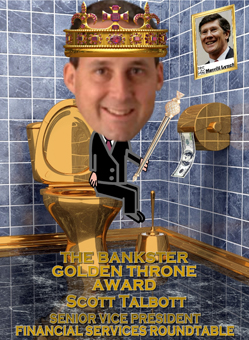The Coal Industry Wants Your Cash to Save Them
A recently-released report by the World Coal Institute (WCI) on how to finance the experimental Carbon Capture and Storage (CCS) technology for power stations, reminded me of a cartoon from years ago by the Australian cartoonist, Patrick Cook. In the cartoon, a huge bloated budgie (parakeet) with the letters "BHP" emblazoned on its chest, was holding a gun to its own head while proclaiming to a cowering politician, "Hand over the loot or the budgie gets it." (At the time, BHP -- which owned iron ore mines and steel mills -- was haggling for government support for its ailing steel operations).
BHP-Billiton ditched its steel interests long ago and is now one of the world's biggest miners and exporters of coal for power stations. It is also a member of the WCI. In its report, titled Securing the Future: Financing Carbon Capture and Storage in a Post-2012 World, the WCI argue that there is an urgent need for massive funding of CCS trials by governments and with a generous slice of revenues from emissions trading schemes. Current funding, the WCI claims, is "too slow to allow necessary global GHG [greenhouse gas] emissions reductions goals to be achieved." Not surprisingly, they identify that "the appetite for this will largely hinge on public acceptance."
What the coal industry realises is that without massive public funding, CCS is dead. Without CCS, the coal industry and power companies locked into coal-fired power stations will, at best, be on life support.

 The Center for Media and Democracy and
The Center for Media and Democracy and  History is unkind to tobacco companies, and never more so than since a federal court in 2006
History is unkind to tobacco companies, and never more so than since a federal court in 2006